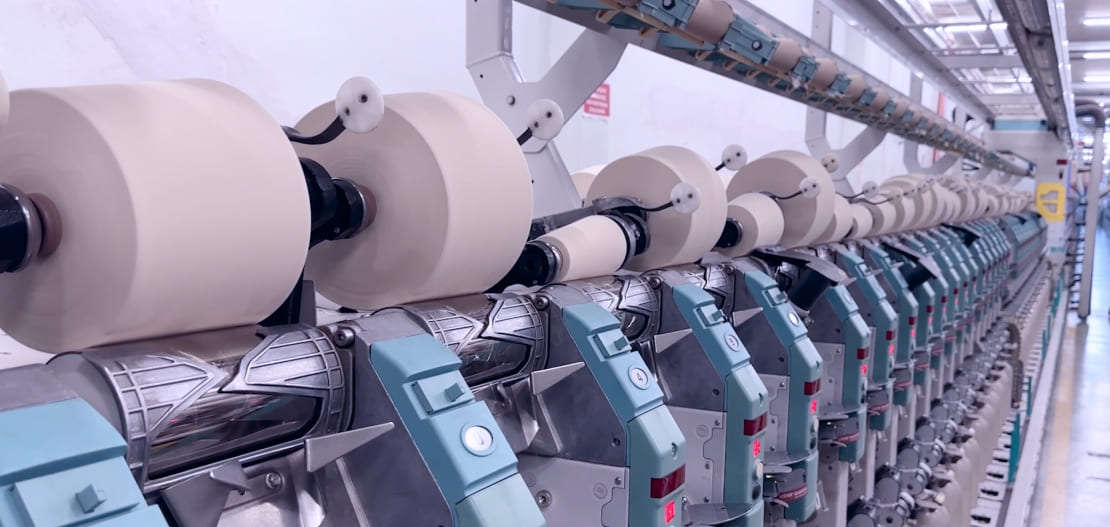In 2025, the textile industry is facing serious challenges — from economic uncertainty and supply chain issues to growing demands for sustainability and digitalization. Turkey, as one of the world’s leading textile producers, is well-positioned to handle these shifts and turn them into opportunities. A great example is Tusa Group, who preferred to go along with IQM Technologies in this journey, one of the leading 1Ci partners in Turkiye, a Turkish company showing how modern technology and sustainable practices help improve efficiency and adapt to market changes.
What’s Changing in the Textile Industry
Here are some key trends shaping the industry today:
- Lower demand: Due to inflation and high living costs, consumers are buying less clothing. This affects fabric orders across the industry.
-
Logistics disruptions: Global instability and conflicts are causing delays and increasing transportation costs.
-
Sustainability expectations: Brands and consumers want to know how and where products are made. Sustainable production and transparency are no longer optional — they’re expected.
-
Shift to digital tools: Companies that want to stay competitive must invest in automation and smart systems.
-
Rising costs: In Turkey, increases in energy prices and minimum wages are pushing businesses to automate and consider sustainable energy sources to keep costs under control.
Turkey’s Sustainable Textile Advantage
Turkey is not only reacting to these challenges but also building long-term advantages:
- Green manufacturing commitment: Since its founding in 1990, Tusa Group has emphasized "a green manufacturing process for a sustainable living." This signals a strategic focus on eco-friendly practices — likely including the use of organic cotton and recycled fibers, both of which are widely available in Türkiye, especially from local sources like Aegean long-staple cotton.
-
Circular economy potential: Thanks to Tusa Group’s vertically integrated structure — from yarn production at Tusa Maraş İplik to weaving and fabric production at Tusa Textile and Tusa Fabric — the company can reduce waste and explore recycling initiatives, key elements of circular fashion.
-
Responsible production: Tusa Denim’s operations highlight social and environmental responsibility, pointing to efforts in sustainable sourcing and reducing environmental impact.
-
Labor standards focus: Turkey is increasingly aligning with global labor standards by prioritizing fair wages, safe working environments, and skill development. Companies like Tusa are investing in employee well-being to meet both regulatory requirements and consumer expectations.
-
Green innovation: The industry is moving toward energy-efficient and water-saving technologies, including waterless dyeing methods and carbon-sequestering textiles — supporting both compliance with global standards and appeal to eco-conscious buyers.
-
Consumer-driven transparency: Technologies such as RFID and blockchain are being implemented to ensure full product traceability from raw material to final garment. These “material passports” respond to rising demand for ethical and sustainable sourcing.
How Tusa Group Is Leading the Way with Digital Transformation
In addition to its sustainability focus, Tusa Group is also investing in digital innovation with the adoption of 1C:Drive, a flexible ERP system that supports the company’s complex and ever-changing operations.
Here’s how this decision helped the business:
-
Custom-fit software: 1C:Drive can be adapted to the company’s unique textile workflows. This is critical in an industry where product types, materials, colors, and customer demands are constantly evolving.
-
All-in-one platform: Tusa integrated its yarn and fabric divisions into a single system, improving communication, speeding up decision-making, and providing real-time visibility across departments.
-
Steps toward Industry 4.0: Thanks to iQM Technology's wealth of sectoral knowledge the company has begun connecting its machines directly to the system, enabling real-time data collection and process automation. In the next phases, Tusa plans to control equipment through the ERP — eliminating the need for third-party programs.
-
Scalability and insight: With a unified platform, Tusa is also moving beyond production to focus on financial analysis, planning, and reporting — turning data into strategy.
Conclusion
In today’s fast-changing textile world, businesses that combine technology, flexibility, and sustainability are best prepared for the future. Tusa Group is a strong example of how a company can grow, evolve, and lead — by investing in both automation and green practices. With 1C:Drive supporting its operations, strong partner in the face of IQM Technology and a clear focus on sustainable production, Tusa is helping set the standard for modern textile manufacturing in Turkey and beyond.







